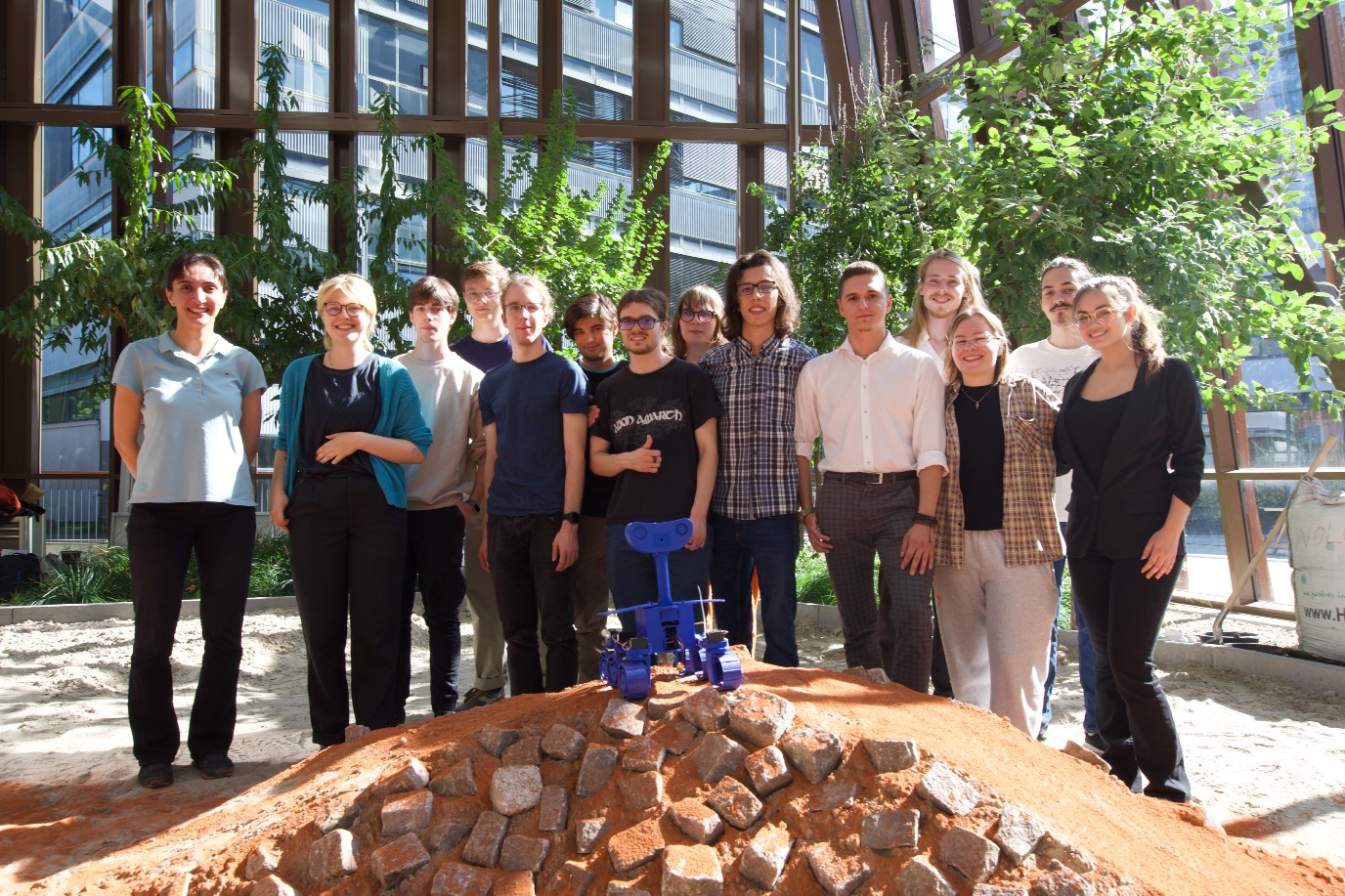UG students win the Mars Rover Challenge
Team Makercie of the University of Groningen has won the remote European RoverChallenge ( ERC ) in Poland. A three-day event in which student teams from all over the world compete. On a special Mars-like circuit (the so-called Mars Yard) the participants have to perform various tasks from real NASA and ESA missions, using a Mars Rover on site or remotely. The team from the UG remotely competed from the Zernike Campus. Makercie is the first team of a Dutch University to participate in the ERC.
The event took place at the Kielce University of Technology campus in Poland from 15 to 17 September and was held for the ninth time.
International ‘tech’ team
Makercie consists of students from a broad range of study programmes: AI, Computing Science, Physics, Chemistry, Law, International Business, Engineering and Mathematics. The team includes nearly fifty members from fifteen different countries. The team that participated consists of the software team of Makercie, since the competition was focused on programming and navigating the Rover instead of building it.

Motivation
The main motivations for the students to participate are the drive to prove themselves and to inspire a new group of UG STEM students. Participant Helena (third year student in the Bachelor Physics) says that the competition gave team members the opportunity to develop their skills at a fast pace: "We only started seriously preparing for the competition in March. Despite the fact that we didn’t have the experience to start out with, our drive led us to learn everything we could for the competition in a really short time. The fact that we won shows how far motivation can get you.”
Worldwide competition
Teams participating in the remote competition all use standardized equipment that allows them to connect via the internet from anywhere on earth. Helena explains the design of the Rover was given to them: “We had to 3-D print it and assemble the electronics ourselves.” After two rounds, we ended up in the last competition round with 15 other teams.
Winners
The winner of the competition is the one who most reliably prepares the software needed for the mission. Additionally, it is necessary to demonstrate strong capabilities in team management, responding to critical situations and change management. Helena: "Since we are a new team, we are very happy that we succeeded against other more experienced and established teams. Winning this challenge makes us even more enthusiastic about developing the team in the future and participating in other competitions. We want our team to become a place for anyone who’s interested in space or robotics.”
The UG team received support from the Innovation Cluster Drachten, the Engineering and Technology Institute Groningen and the Faculty of Science and Engineering (University of Groningen). Makercie will participate in the next edition of the ERC as well as the University Rover Challenge in Utah in the USA in 2024.
Read more at the ScienceLinx website.
More news
-
29 January 2026
Microplastic research - media hype or real danger?
-
27 January 2026
ERC Proof of Concept grant for Maria Loi
